Many noteworthy feature guitarists are known for their ability to solo endlessly throughout an album, flooring you with their chops and musicality. They know what you want to hear and give it to you in the styles and even the keys you’ve come to expect. Not that there’s anything wrong with that.
With his latest CD, Devoceon, Levi Chen again demonstrates that the guitar as a feature instrument can be so much more. This eighth release finds the well-traveled musician painting ethereal and melodic landscapes with a palette of influences and instruments that are as original as his ‘solo dueting’ technique that involves playing his Strat and a Chinese Gu Zheng harp at the same time. Implicit among fans of Chen’s work is the idea that music has the ability to take you somewhere. Naturally, some of us enjoy going to new places and experiencing new things more than others.
I recently had a chance to pick Chen’s brain about his style, the new CD and the gear he uses.
Hi Levi, thanks for chatting with me. I know artists hate being categorized and having their work boiled down to simple descriptions but sometimes an accessible summary is what prompts an unfamiliar listener to give something a spin. How would you describe your music and, specifically, your newest CD, Devocean?
Well, I like to think of the music I play as "good!"
In general I refer to the sound and style as “liquid gardens.” I feel that describes it perfectly! Or there’s always, "Hendrix meets Eno in China!"
I would describe Devocean as “guitar for music fans,” as opposed to music for guitar fans only. Good guitar for people who love good music. My intention was to make a “pop instrumental guitar” album. There are many styles and instrumentations, many with wonderful orchestral arrangements by Clifford Tasner, and I tried to make each appreciable in it’s own right, as well as an album.
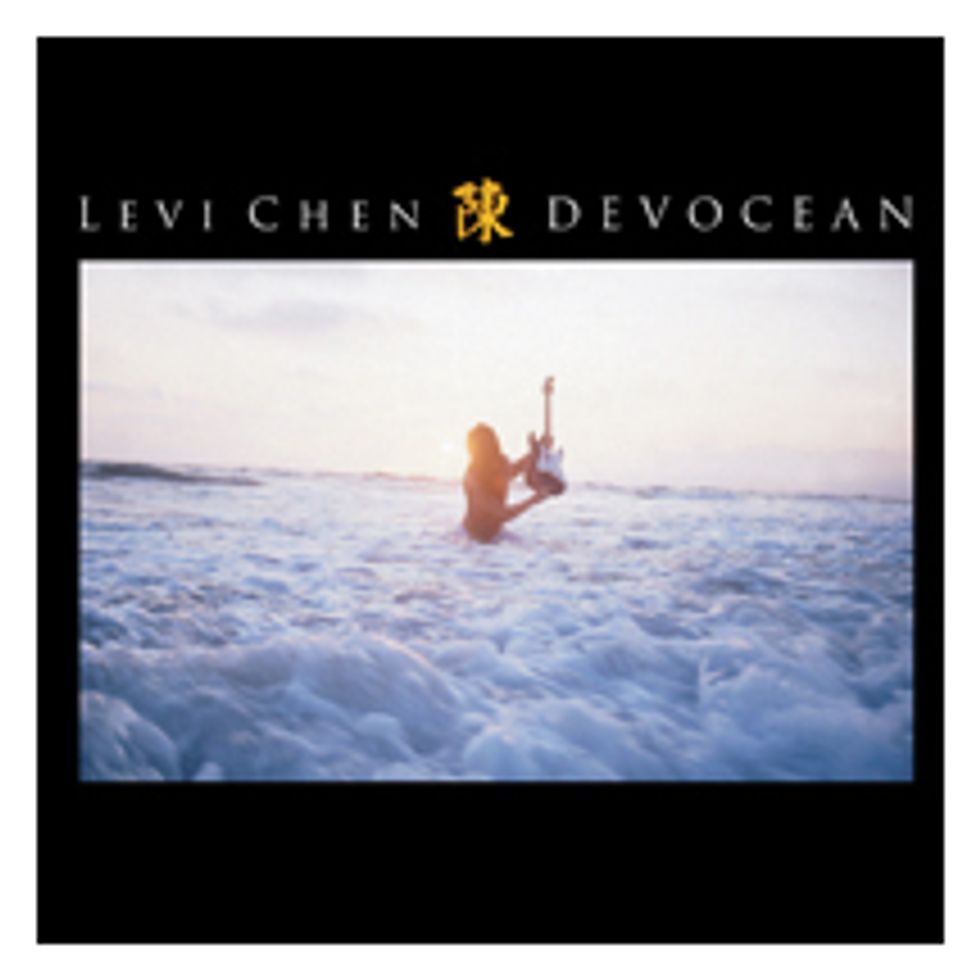
Unlike many instrumental CDs by talented guitarists, Devocean is an inspired sonic work of art… not a guitar virtuoso shred fest. As the product of a personal negotiation with a profound event, your father’s death, it explores emotions via your playing rather than simply showcasing your chops. Talk about the process of accessing musical creativity while confronting such a life-changing event.
For me, creativity is something that is always present. It is only a matter of tuning in or out of it. Sometimes it has to be shut off – it can get overwhelming. I have more concept albums and projects conceived than I will ever be able to produce. If I play guitar too much or write too much, I get confused, or just flat out bury great ideas under new ones.
On the other hand, I believe you only have to be open to it to access it. Stop for a second and take a breath, listen to your ears, or look with your eyes and receive it – acknowledge creation.
I played guitar for my father every day for three weeks on his deathbed. I composed “Memory” one afternoon while playing for him. Simply playing an E minor chord slowly over and over... until I heard the next chord, and the next. The simple melody came slowly out of the voice leadings. Actually, this is the same approach I’ve had for years now in regards to soloing or improvising – no matter how fast or slow it seems I am playing, I’m actually just waiting for the next note to present itself. My job as a musician is to articulate the music as it appears; as a composer it is to recognize and acknowledge the music, and make decisions about highlighting or elaborating certain elements, eliminating others, helping it to reach its ideal expression (or one of them).
I never had the interest or patience to actively pursue incredible chops or technique for its own sake. All technique comes from a need to articulate musically. So as I evolved as a guitarist/musician, I only acquired a new technique when it became necessary to express something. I only want to communicate what I feel. I love how Van Halen makes me laugh at the sheer exuberance and playfulness of his solos; I love Tuck Andress’ musicality or DiMeola’s incredible technical passion. But that is what they feel, not me. So I only adapt what I need to express my emotions, learning a lick when I relate to how it makes me feel.
Most of my technique, on guitar and on the Gu Zheng, (simultaneously or not), is based on sheer willpower and intention -- I know what I want to do, and I do it.
Let’s talk gear. Tell us about your overall approach to getting the tones in your head out of your studio monitors or FOH speakers at a performance. Also, specifically, do you have particular gear/rigs you go to often for signature sounds?
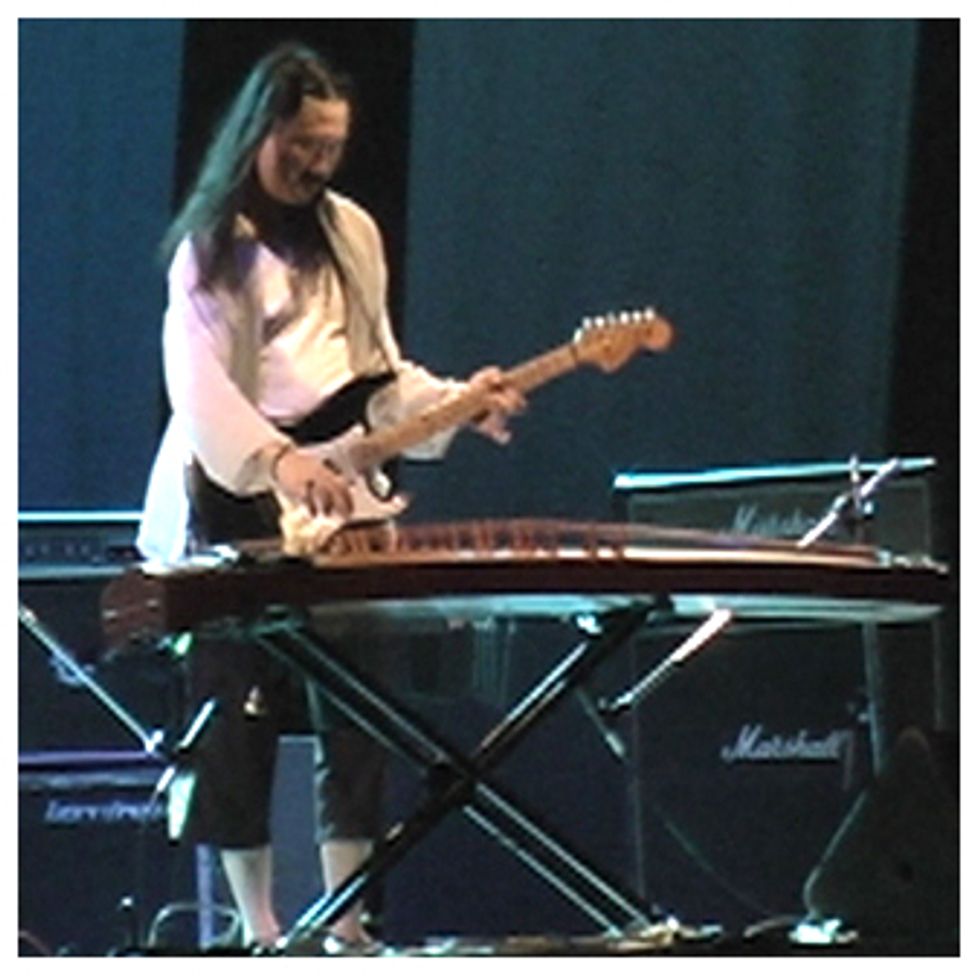
As far as my sound goes, it is quite simple: a Stratocaster, echo and a tube amp (plus stereo chorus and another tube amp if possible). I only need one good amp sound and an overdrive-type pedal to get my basic gain structure. I play in the neck position 90% of the time – it has that full-bodied, throaty sound, and the single coil gives it maximum focus and clarity. For certain passages or parts – like harmonics, for example – I will use the middle pickup or both. I normally only use the bridge pickup with maximum gain during leads or crescendos.
The most integral part of my style/technique is the constant manipulation of the volume knob and the delay pedal. Unlike how Santana, Jimmy Page or Jeff Beck are constantly adjusting their volume to affect the tone and overdrive of the amp, I play with the guitar volume at 10 most of the time. But I manipulate the attack of nearly half the notes I play. This, combined with the delay, creates the swells and bowed tones from my guitar. But it also serves to subtly mask the ping pong-ing effect of the amount of delay I use. The volume knob provides truly infinite possibilities of expression both ways, as there is always a different attack on each note. Combined with the delay and vibrato/bends, the possibilities for nuance (and random magic) are endless.
My most treasured pedal is my Ibanez Soundtank “Echomachine.” It’s almost like a cool toy spaceship! Someone once told me they used a delay chip from a karaoke machine for this pedal! I love it because it is so low-fi, it sounds analog, and the definition of the repeats are blurred. Yet it retains enough of that digital clarity. I set the mix at about 50% and the feedback around 70%. Other pedals I use are a T.C. Stereo Chorus I’ve had for 20 years, and an early ''70s King Vox Wah (for which I recently found a great spare – whew!). I’ve used Boss chorus pedals forever, but recently got a Voodoo Labs Analog Chorus, which is awesome. I use a reissue Ibanez TS9 Tube Screamer and a Carl Martin compressor. I also totally dig the new Peterson StroboStomp tuner.
After many years of Fender Amps, I recently got a Mesa Boogie Lone Star amp that I love. It is an incredible piece of engineering – the knobs actually do what they claim! It’s perfect for me since I primarily use a super-clean overdriven sound. The sensitivity and dynamics of the amp can be fine-tuned to provide a variety of tube tones.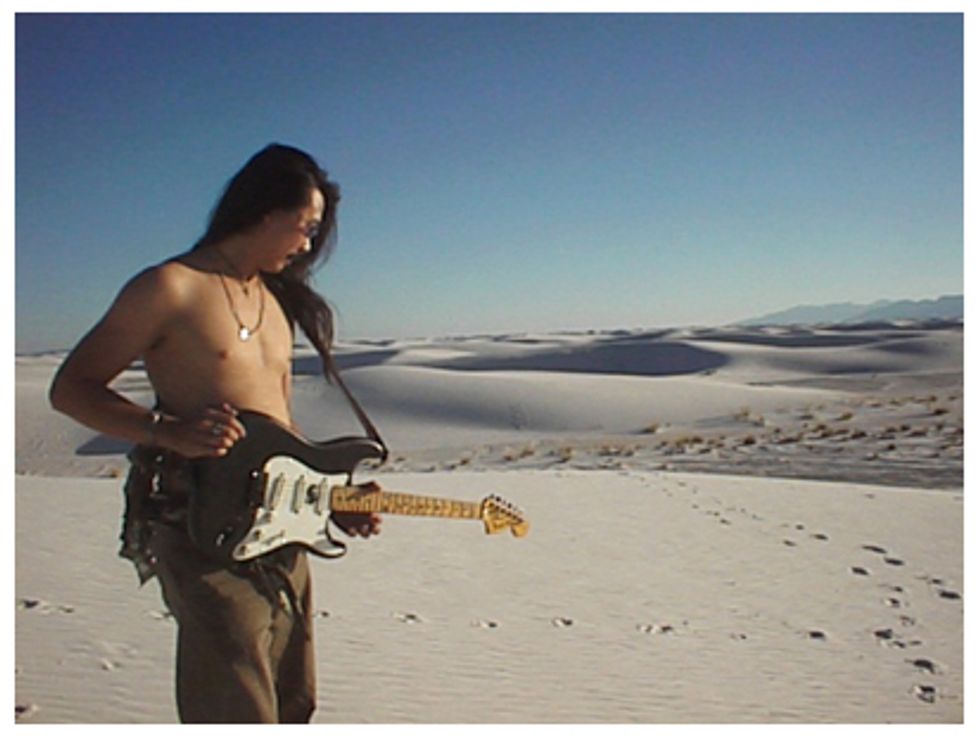
As minimal as I like to think I am about my rig, it''s made very complicated by the Chinese harp and guitar combination (both in stereo). For me to really flow, I need to have as much spatial ambiance as is practical, thus always stereo.
So I run my guitar through the pedals: wah, overdrive, tuner, echo, mono chorus then to the Boogie. I take the line out of the Boogie and send it to the compressor, then the T.C. Stereo Chorus. From here, in most situations, it goes to two Bose L1 PA columns in shimmering stereo.
I use the Bose because it sounds amazing for the Chinese harp (which is acoustic), which I run through a Fishman Platinum preamp (an amazing piece) and a Boss CE5. The linear array speakers really cut way down on feedback at higher volumes. The guitar tone is blended in through the Bose PA, but the signal path from guitar to amp is as simple and clean as possible (this is critical for tone... you must pay attention to the order of the pedals and the entire audio path from guitar to the amp).
This is my personal PA/monitor setup. Even on-stage with the band it allows me to hear clearly. In a perfect world I would only use the Bose for the Gu Zheng, and the guitar would go from the Boogie to two more Boogies in stereo (in a perfect world I’d have two roadies!).
In the studio, I try and play my guitar through one clean amp and one with delay on it, isolated. This way the tone can be recorded dry, but since so much of my technique involves interaction with the delay, it is captured too.
For Devocean I played my black Strat (I''ve owned it since 1977) through a Fender Vibro King, Vibrolux Reverb, and Twin. I played a Parker Hardtail Fly on three of the tracks. Also my Guild F-47 maple cutaway acoustic, and a Carter Starter Pedal Steel.
You play live shows all over the globe, are there any places that you feel you really connect the most?
Texas and Ireland. Those people love music! Need I say more?
The video for "Sound and Recent Sorrow" involves some compelling imagery. Tell us about the shoot and what it was like approaching the video aesthetics to such an inspired piece of music.
As the song came closer to being finished, I knew I didn’t want it to go out without a video. So I was brainstorming with my assistant at the time, Jacqueline, and talking about the ideas of the song – the SARS epidemic, tragedy, suffering, the human condition, fear, attachment, and sorrow. But, as with my music, I didn’t want it to be too literal. During my time at Hampshire College, I had worked closely with several choreographers, so I was familiar with contemporary forms of dance. I asked her if she had ever heard of Butoh Dance, a post-nuclear bomb form of dance from Japan. She said “I studied it,” and that was the spark. We found a talented young producer/director team and they came up with the overall look and feel of the piece. We contacted Corpus Delicti, a L.A. based troupe and started rehearsals. I asked Susan to come down from Seattle to play her part and she did.
The two-day shoot was one of the high points in my career. I realized that all the crew was there to help manifest something that came from my head, a dream, a vision.
The actual story developed in editing, as there was not a clear storyboard. It really came together at that point. I personally sat with the editor, Roger, for nearly 60 hours to finish the cut.
I am truly delighted with the result, and feel it captures the emotional content of the song perfectly, as well as tells (abstractly) about my personal sorrow and transformation surrounding my father’s death. I feel it represents "liquid gardens" exceptionally well -- in a visual way it reflects the same issues and aesthetics that I try to achieve in my music.
For many people there are music scales and then there is spirituality. Talk about where and how the two meet in your artistry.
There is form and there is flow. The form could affect the flow, but if nothing is flowing what good is the form?
There is math and there is magic (like the number ‘pi’). The math can never prove there is no magic, because it is magic. There is structure and there is spirit. The structure can help lift the spirit, but if the spirit leaves, what good is the structure?
What’s next on your horizon?
There are so many projects: a holiday song and album with guest vocalists, a live CD/DVD set, a compilation of my first seven CDs and a new music video, to name a few. There is only one real priority for me – tour, tour, tour! I love my band and hope to have fun with you all soon!
Memory (DNA) - Track 1, DevOcean
Desired Straits - Track 3, DevOcean


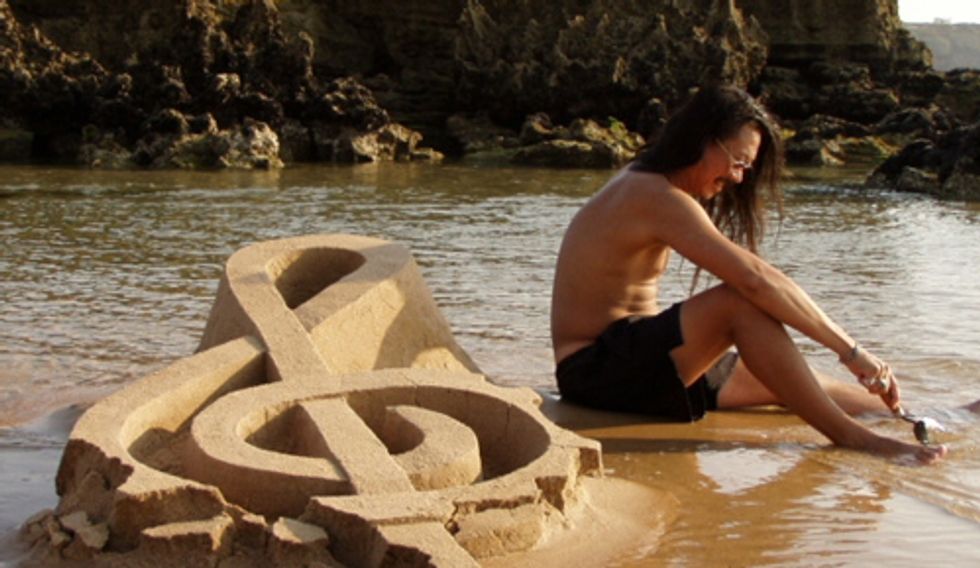






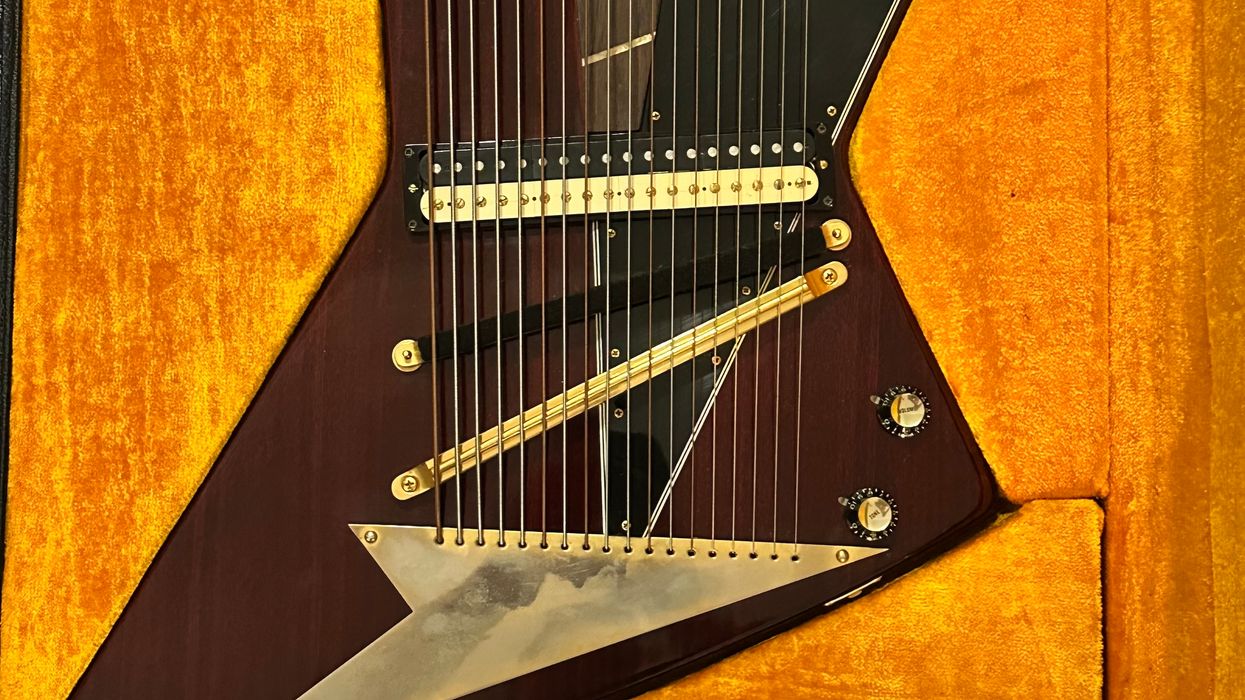
![Rig Rundown: Russian Circles’ Mike Sullivan [2025]](https://www.premierguitar.com/media-library/youtube.jpg?id=62303631&width=1245&height=700&quality=70&coordinates=0%2C0%2C0%2C0)
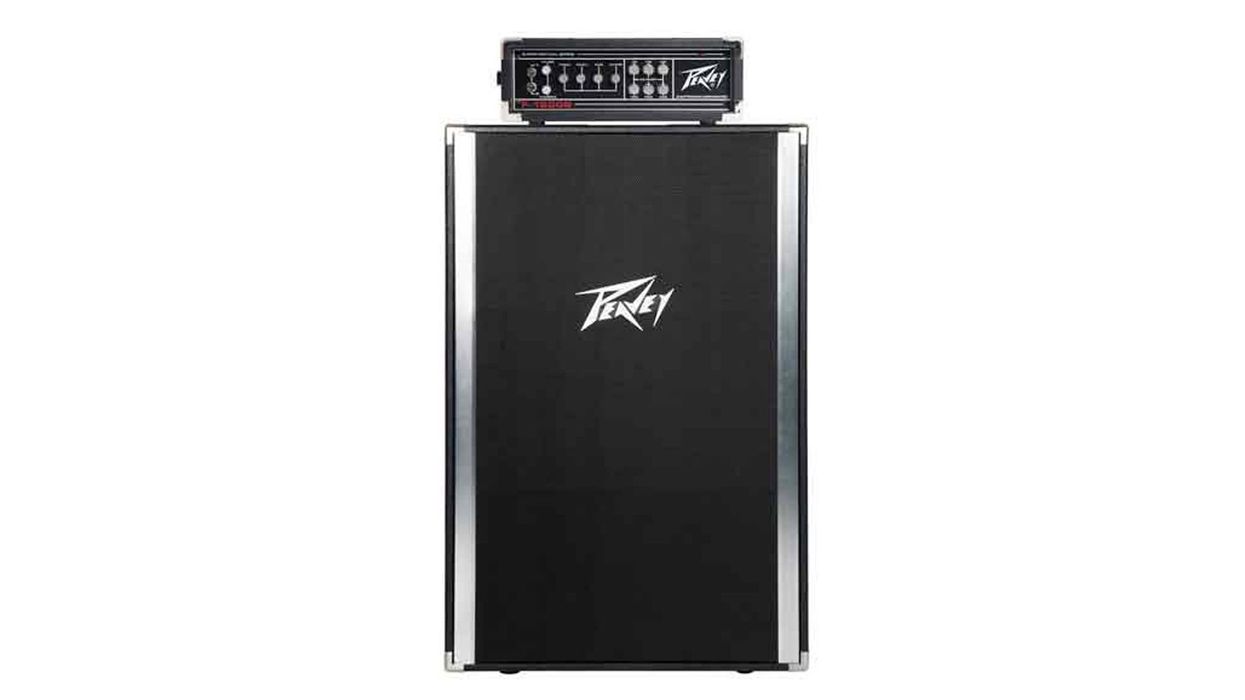
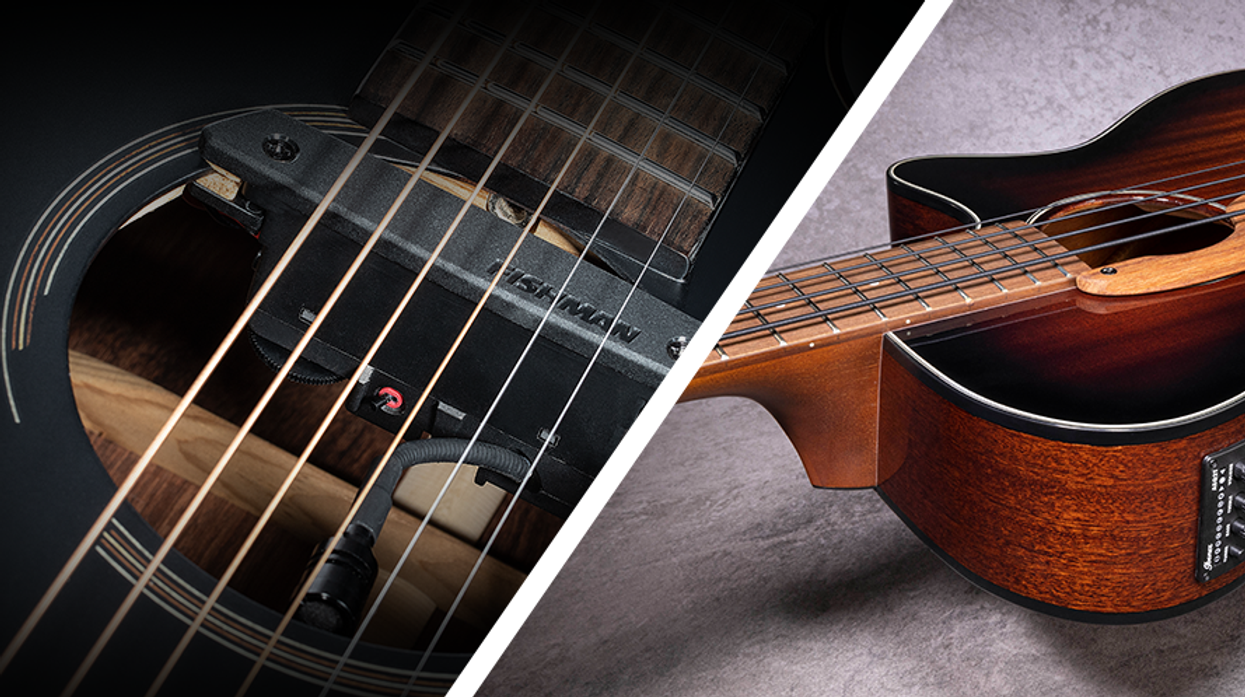
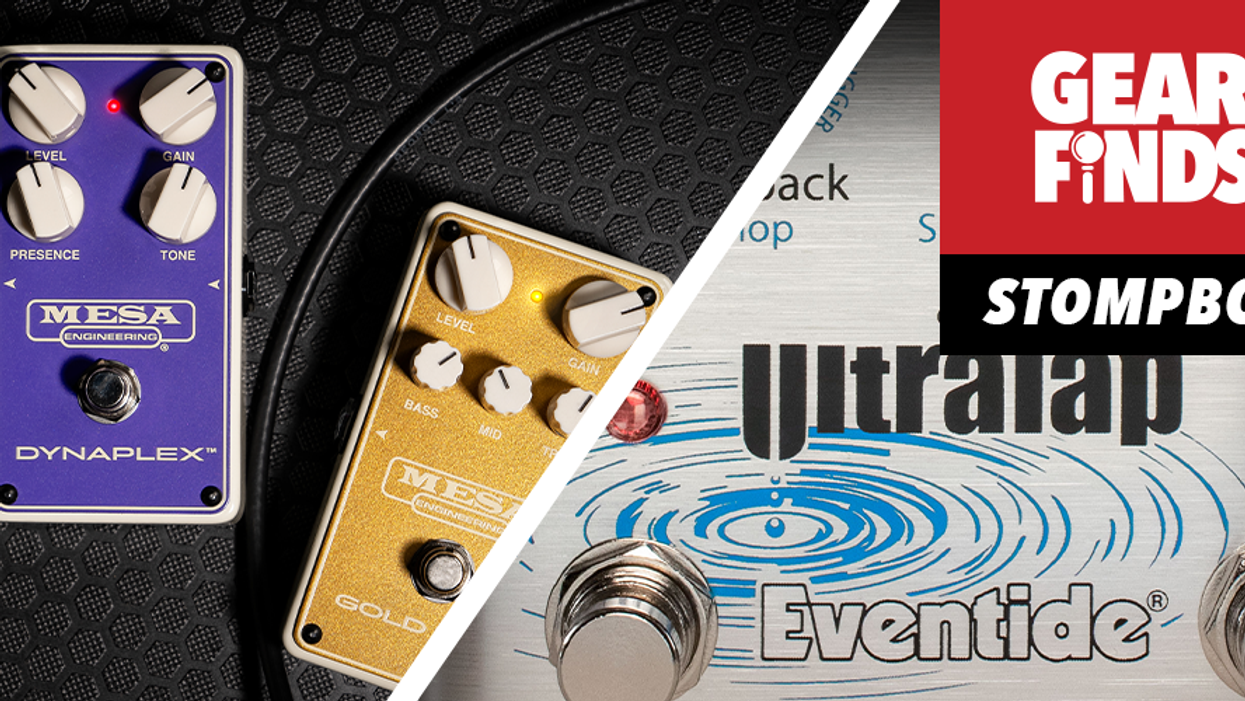










![Rig Rundown: AFI [2025]](https://www.premierguitar.com/media-library/youtube.jpg?id=62064741&width=1245&height=700&quality=70&coordinates=0%2C0%2C0%2C0)




















 Zach loves his Sovtek Mig 60 head, which he plays through a cab he built himself at a pipe-organ shop in Denver. Every glue joint is lined with thin leather for maximum air tightness, and it’s stocked with Celestion G12M Greenback speakers.
Zach loves his Sovtek Mig 60 head, which he plays through a cab he built himself at a pipe-organ shop in Denver. Every glue joint is lined with thin leather for maximum air tightness, and it’s stocked with Celestion G12M Greenback speakers.











